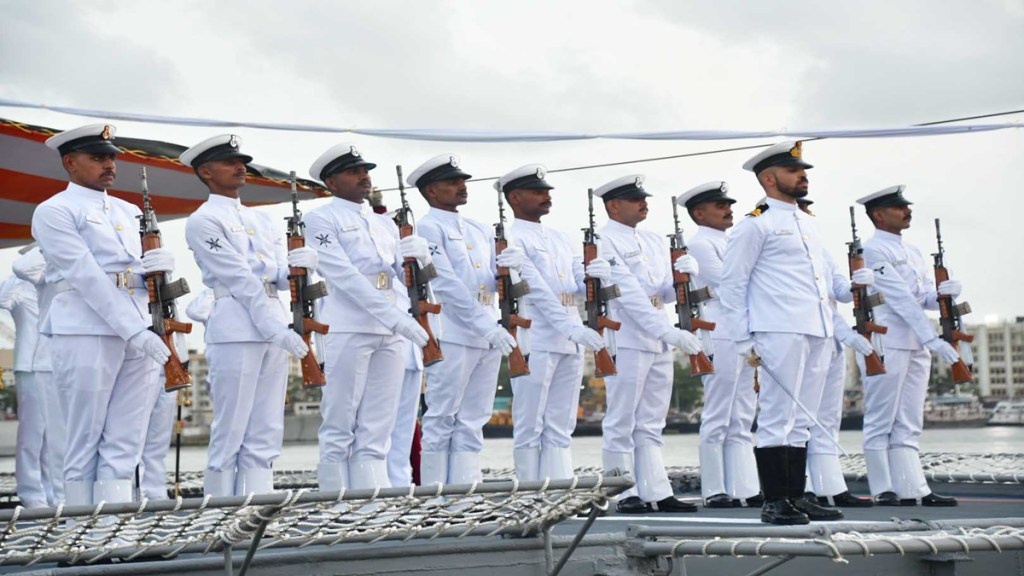The path ahead for the eight incarcerated veterans – seven retired officers and a retired sailor – entails navigating Qatar’s legal system. Their next step is to approach Qatar’s Court of Appeal. In the event that this proves unsuccessful, their last legal resort is the Court of Cassation.
According to Md. Muddassir Quamar, Associate Professor, Centre for West Asian Studies, School of International Studies, Jawaharlal Nehru University: “It is a complicated situation and given that they have been awarded capital punishment, indicates that the allegations are serious. Only after the detailed judgment is made available can the Government of India take a considered stand.”
“In the meantime, diplomatic and political efforts should be towards seeking a favourable outcome,” Md Quamar suggests.
What are the options available?
In his view, “among options available are MoU on exchange of sentenced persons. But that presupposes commuting a death sentence to imprisonment.
The immediate priority should be to explore legal options to prevent the execution of sentences.
Appeal in higher court, or in the Royal Diwan of Emir can also be explored.”
However, Emir pardons are typically granted on specific occasions like Eid ul Fitr or Eid ul Zuha and on its National Day, which falls on the 18th of December.
Indian authorities are closely engaged with Qatari officials regarding this matter, and they are hopeful that the appeal process will unfold favorably.
It has been reported previously that the initial arrests of these veterans by Qatari authorities were rooted in suspicion, possibly influenced by a foreign entity antagonistic to India. Just as in India, once legal proceedings commence, they must follow the due process within Qatar’s legal framework.
The optimism of Indian officials hinges on the close bilateral relations between India and Qatar, which they believe may ultimately facilitate the return of these veterans.
The reasons for the detention and arrest of these veterans remain veiled in official secrecy. Nonetheless, sources have confirmed that the allegations revolve around the unauthorized disclosure of sensitive information. These veterans were previously affiliated with the private firm Dahra Global Technologies and Consultancy Services, owned by an Omani national. Notably, this Omani national was detained last year but subsequently released.
The intricacies of this suspicion remain confidential due to the sensitive nature of the matter. It’s important to emphasize that any allegations of espionage on behalf of a third country were vehemently refuted.
The company had previously engaged in projects with Qatar’s armed forces. The suspicion that led to the detention of these Indian Navy officers by the Qatari Ministry of Interior’s State Security Bureau on August 30th last year was connected to the belief that they had shared unspecified information with unauthorized individuals. It is possible that this suspicion was fueled by a foreign entity with adverse intentions towards Indian interests but with close ties to Qatar.
Notably, the Indian defense attaché in Qatar, a naval officer, returned to India earlier this year, concluding his tenure before its designated end.
The ordeal faced by these eight veterans was arduous. When they were apprehended in August last year, they were unaware of each other’s detention. Each was subjected to solitary confinement for several months. During this trying period, they endured what has been described as “torture” at the hands of Qatari intelligence officers. Detailed accounts of this alleged mistreatment were not provided.
Despite the harsh conditions, the veterans received necessary medical attention and medications for their various ailments, including high blood pressure and diabetes. It wasn’t until October last year that Qatar granted consular access to these men, allowing them to discover that their fellow veterans had also been detained. The solitary confinement persisted until around March this year, after which they were paired in cells.
During their solitary confinement, they were occasionally allowed outside in the sunlight, albeit with no other individuals present. Initially, they were denied the privilege of making phone calls, but later they were permitted two calls per week. It wasn’t until January that the spouses of the veterans were allowed to visit them.
It’s worth noting that Qatar is home to a substantial expatriate community of approximately 700,000 Indian nationals, the largest such community in the nation. This demographic fact underscores the importance of diplomatic and bilateral efforts to address the situation and secure the release of these veterans.

